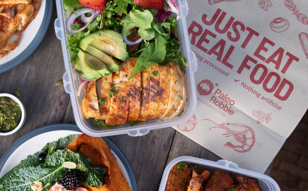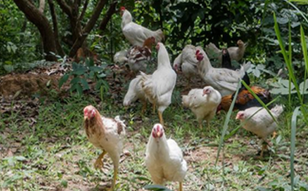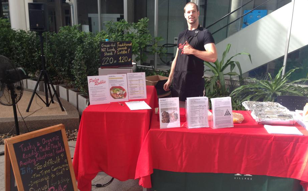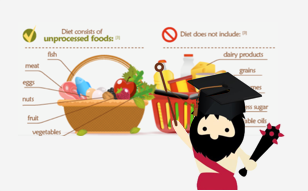In the world I grew up in, also known as the developed world, sleep has been strongly associated with weakness, even shame. A question I’ve been asking myself in recent days (especially after digging into the research about the importance of sleep on our health), is: why is sleep stigmatized with the label of laziness?
Even with the very best nutritional diet and fitness routine, if you’re not getting enough quality sleep, you’re sabotaging your overall health. The connection between sleep and health is hard to ignore, and for the sake of our biological vitality and longevity, we need to shift the current stigmatization of sleep.
Quality Sleep Doesn’t Come Easy in Bangkok
If you live within the core of the city and right above Sukhumvit Road/BTS Skytrain as I do, it’ll come to no surprise that getting quality sleep is something that doesn’t come easy.
In fact, it took me a couple months to finally develop a good pre-bedtime routine that helped me get better quality sleep. Although it’s been better in recent months, there is a lot of room for improvement in the amount of REM (rapid eye movement) and deep sleep I’m getting.
Taking a look at my sleep analysis taken from the Fitbit app via my Fitbit Ionic watch, I am still below the typical range for men of my age for REM and deep sleep. I’m averaging around 7.5 hours of time asleep, which is enough for me to feel energized and optimally focused throughout the day.
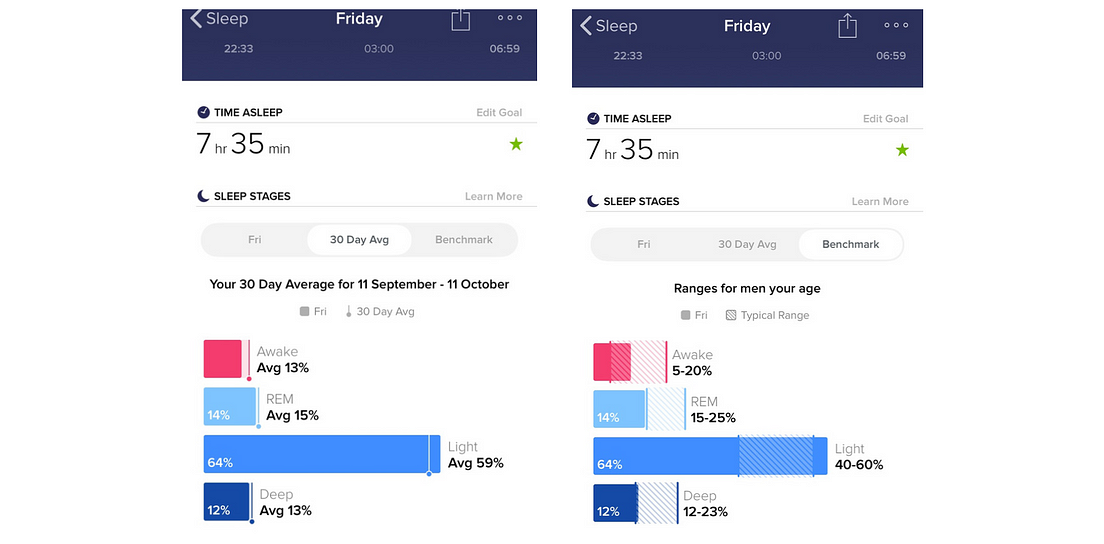
Sleep is not for the weak
The question again: why is sleep tagged with being ‘slothful’? Is it because we want to seem busy? Is it embarrassing to publicly proclaim that we are getting eight or nine hours’ of sleep a night? Is it because we believe we can survive on five hours of sleep or less without any drawbacks or physical impairments?
I believe it’s all of the above — and we need to change this behavior if we want to improve all the other aspects of our health.
Sleep is number one in my books — before nutrition and exercise.
There is a ton of solid research on the detrimental effects of poor and/or lack of sleep on your health, and I will reference some of these articles below. Here’s the short-list:
The Effects of Lack of Sleep
Based on evidence from large-scale epidemiological studies, lack of sleep can:
- Make you susceptible to weight gain due to the decreased levels of the satiety-signaling (‘feeling full’) hormone, leptin, and increases levels of the hunger-signaling hormone, ghrelin.
- Hijack the body’s effective control of sugar, becoming less responsive to insulin, and thus to cause a prediabetic state of hyperglycemia.
- Powerfully effect the immune system in a negative way. Reduced sleep even for a single night can drastically reduce your immune system’s resilience to sickness (like the flu).
- Significantly raise your risk of developing Alzheimer’s disease if you’re getting too little sleep across the adult lifespan.
- Effect your mental health. Deep sleep is a therapeutic state during which we cast off the emotional charge of our experiences, making them easier to bear. If you lack quality deep sleep, there is evidence that your mood is negatively affected, significantly.
Reference: The Guardian, ‘Sleep should be prescribed’: what those late nights out could be costing you.
Exercise Is My Key to Success(ful) Sleep
Probably the most popular piece of advice that people will give about sleep is: exercise more frequently for better quality sleep. I absolutely agree and have been using exercise as a sleep-assist for years. You can bet that after a heavy day of weight-lifting and high intensity cardio (either Muay Thai kickboxing or a circuit training session at BASE Bangkok), my body is yearning for that extra deep sleep.
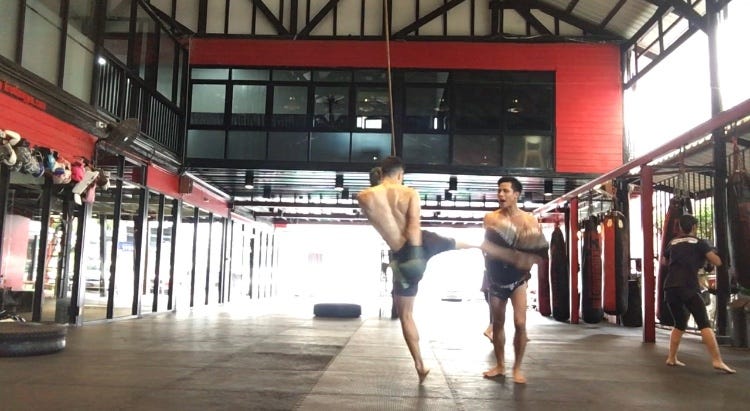
However, I found that the effect of sleep on my exercise/output performance the next day has a much more significant effect. When I get enough combined REM and deep sleep, my levels of physical exertion are powerfully maximal the next day. In other words, sleep may have more of an influence on exercise than exercise has on sleep.
“Sleep is the greatest legal performance enhancing drug that most people are neglecting in sport.”
- Matthew Walker, Sleep Specialist
Practice Could Make Perfect — Pre-Bedtime Routine
If you look ask today’s most successful individuals, most will proudly tell you that they don’t just get sleep every night, but that they have a pre-bed routine that they rely on to help them get the quality type of rest that allows them to perform optimally the next day.
If you haven’t developed a pre-bed routine, there is a lot of evidence that will push you to start. Every person is different and every person is going to have a different bedtime routine that they rely on every evening.
Here are some tips that I personally use for my pre-bedtime routine:
1. Try your best to stick to a regular sleep schedule.
An obvious one, but also something that shouldn’t be overlooked. I try to go to bed at around 11PM latest every night, and get up at around 7AM every morning. Doing this for many consecutive weeks makes me feel much more rested in the morning.
2. Set your phone to silent and leave it in another room.
If I’m sticking to my regular sleep schedule and plan to sleep 11PM, I try to disconnect from my phone and laptop 30 minutes beforehand, leaving all distracting devices in another room. Not only does it help clear my mind while lessening any feelings of stress, the blue-light from these devices negatively effect your ability to fall asleep.
3. Find a relaxing activity you enjoy before bed. I stretch.
Find something to do that relaxes you and helps you unwind before bed. Personally, I do a light 15-minute mindful stretch session. Stretching is something I preach religiously to promote physical longevity — and you can increase your flexibility no matter how old you are!
4. Ear plugs is a must for me.
Especially living above Sukhumvit Road, there is rarely a break in the loud screeching’s of tires, or the unnecessary revving of motorcycles passing through the late night — that’s why I use noise-cancelling ear plugs. But of course it’s nearly impossible to drown out 100% of the noise, so I’m even exploring the option of installing noise-cancelling windows in the bedroom. It’s a real problem! There's a useful article here by A Farang Abroad on how to find the best apartments, with some useful advice on how to find rooms with minimal noise.
5. Cut out all the lights and keep it cool.
I always make sure the room is pitch black and the air conditioning is set at 23 degrees, which is cool enough for me to get a comfortable sleep. There is solid evidence on both of these factors playing a crucial role in sleep quality.
6. My coffee cut-off time is around 2PM
Even though I’m addicted to coffee, I won’t let it effect my sleep. After years of being an avid coffee drinker, I’ve found that if I have my last coffee (or any other caffeinated drink) at 2PM, I don’t have any trouble falling asleep. If you enjoy coffee or green tea as much as I do, I recommend you test different cut-off times and see how it effects your ability to fall asleep.
Great Reference on Sleep
Do take the time to watch (or listen) to my main man Joe Rogan and his podcast with sleep specialist Matthew Walker. Matthew is a Professor of Neuroscience and Psychology at the University of California, Berkeley, and Founder and Director of the Center for Human Sleep Science. Click here to listen to the podcast
Written by Darren Liu - See Original Article by clicking here
A Canadian Expat living in Bangkok since 2016. I’m a healthy-living devotee - and through research, personal experimentation, and sheer passion, I’m on a mission to find the optimal way to live through nutrition and fitness. Follow my journey as I try to reverse aging.


 Latest
Latest Newsletters
Newsletters Learn
Learn Recipes
Recipes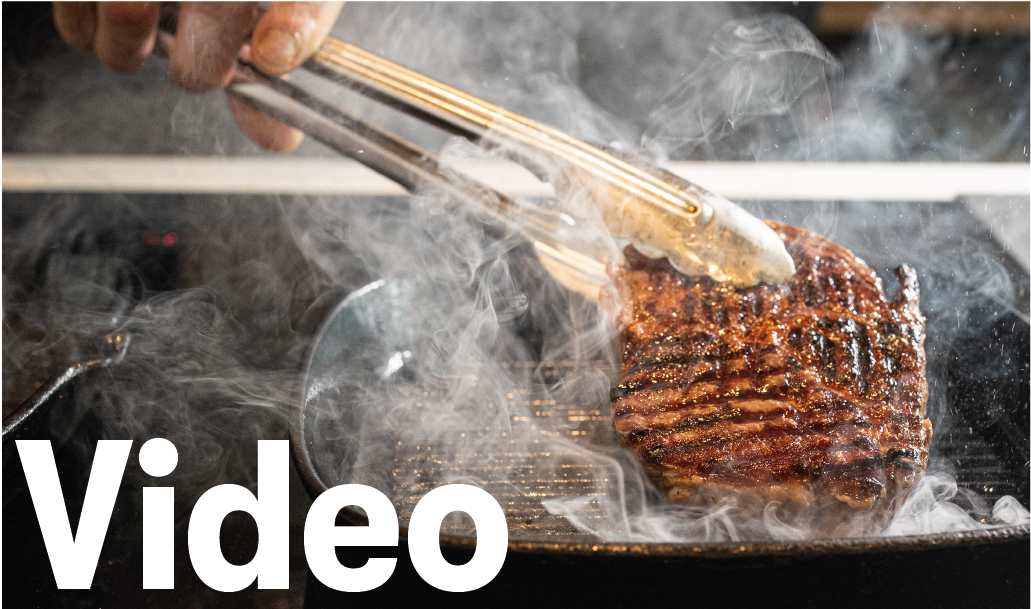 Video
Video